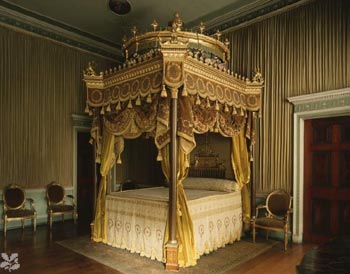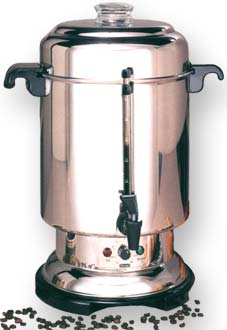Early life
He was born in Texas, to Emmett Berry and Josie Bell Murphy (née Killian) who was of Irish descent, poor sharecroppers, and grew up on farms between 
Farmersville and Greenville, as well as near Celeste, Texas (Hunt County). Murphy was the sixth of twelve children, nine of whom survived until the age of eighteen. His brothers and sisters included Corinne, Charles Emmett (Buck), Vernon, June, Oneta, J.W., Richard, Eugene, Nadine, Billie, and Joseph Murphy. He went to school in Celeste until the eighth grade, when he dropped out to help support his family (his father deserted them in 1936), working for a dollar a day, plowing and picking cotton on any farm that would hire him. He became very skilled with a rifle, hunting small game to help feed the family. One of his favorite hunting companions was neighbor Dial Henley who noticed that young Audie never missed when he shot at squirrels, rabbits, or birds. When that was pointed out to him, Murphy remarked, "Well, Dial, if I don't hit what I shoot at, my family won't eat today." During the 1930s Murphy worked at a combination general store/garage and filling station in Greenville, Texas. At sixteen he was working in a radio repair shop when his mother died on May 23, 1941. Later that year, in agreement with his older sister, Corrinne, Murphy was forced to place his three youngest siblings in an orphanage to ensure their care (he reclaimed them after World War II).
Enlistment After the attack on Pearl Harbor on December 7, 1941, Murphy (then just 16 years old) tried to enlist in the military, but the services rejected him for being underage. In June 1942, shortly after his 17th birthday (sister Corrine adjusted his birth date so he appeared to be 18 and legally allowed to enlist, and his war memoirs, To Hell and Back, maintained this misinformation, leading to later confusion and contradictory statements as to his year of birth), Murphy was accepted into the United States Army, at Greenville, after being turned down by the Marines and the paratroopers for being too short (5'5"/1.65 m) and of slight build.He was sent to Camp Wolters, Texas, for basic training and during a session of close order drill, passed out. His company commander tried to have him transferred to a cook and bakers' school because of his baby-faced youthfulness, but Murphy insisted on becoming a combat soldier. His wish was granted: after 13 weeks of basic training, he was sent to Fort Meade, Maryland for advanced infantry training.
Battles Murphy still had to "fight the system" to get overseas and into combat. His persistence paid off, and in early 1943 he was shipped out to Casablanca, Morocco as a replacement in Company B, 1st Battalion, 15th Infantry Regiment (United States), 3rd Infantry Division. Murphy saw no action in Africa, but instead participated in extensive training maneuvers along with the rest of the 3rd Division. His combat initiation finally came when he took part in the liberation of Sicily on July 10, 1943. Shortly after arriving, Murphy was promoted to corporal after killing two Italian officers as they tried to escape on horseback. He contracted malaria while in Sicily, an illness which put him in the hospital several times during his Army years. After Sicily was secured from the Germans, the 3rd Division invaded the Italian mainland, landing near Salerno in September 1943. While leading a night patrol, Murphy and his men ran into German soldiers but fought their way out of an ambush, taking cover in a rock quarry. The German command sent a squad of soldiers in but they were stopped by intense machine-gun and rifle fire: Three German soldiers were killed and several others captured. For his actions at Salerno, Murphy was promoted to sergeant. Murphy distinguished himself in combat on many occasions while in Italy, fighting at the Volturno River, at the Anzio beachhead, and in the cold, wet Italian mountains. While in Italy, his instinctive skills as a combat infantryman earned him promotions and decorations for valor. Following its participation in the Italian campaign, the 3rd Division invaded Southern France on August 15, 1944 (Operation Anvil-Dragoon). Shortly thereafter, Murphy's best friend, Lattie Tipton (referred to as "Brandon" in Murphy's book To Hell and Back), was killed while approaching a German soldier who was feigning surrender. Murphy went into a rage, and single-handedly wiped out the German machine gun crew which had just killed his friend. He then used the German machine gun and grenades to destroy several other nearby enemy positions. For this act, Murphy received the Distinguished Service Cross (second only to the Medal of Honor). During seven weeks of fighting in that campaign in France, Murphy's division suffered 4,500 casualties. seven weeks of fighting in that campaign in France, Murphy's division suffered 4,500 casualties.
Just weeks later, he received two Silver Stars for further heroic actions. Murphy, by now a staff sergeant and holding the position of Platoon Sergeant, was eventually awarded a battlefield commission to second lieutenant, which elevated him to the Platoon Leader position. He was wounded in the hip by a sniper's ricocheting bullet 12 days after the promotion and spent ten weeks recuperating. Within days of returning to his unit, and still bandaged, he became company commander (January 25, 1945), and suffered further wounds from a mortar round which killed two others nearby. The next day, January 26 (the temperature was 14 degrees with 24 inches of snow on the ground), the battle at Holtzwihr (France) began with Murphy's unit at an effective strength of 19 out of 128. Murphy sent all of his men to the rear while he took pot-shots at the Germans until out of ammunition. He then proceeded to use an abandoned, burning tank destroyer's .50 caliber machine gun to cut into the German infantry at a distance, including one full squad of German infantry that had crawled in a ditch to within 100 feet of his position. Wounded in the leg during heavy fire, he continued this nearly single-handed battle for almost an hour. His focus on the battle before him stopped only when his telephone line to the artillery fire direction center was cut by either U.S. or German artillery. As his remaining men came forward, he quickly organized them to conduct a counter attack, which ultimately drove the enemy away from Holtzwihr. These actions earned Murphy the Medal of Honor. hour. His focus on the battle before him stopped only when his telephone line to the artillery fire direction center was cut by either U.S. or German artillery. As his remaining men came forward, he quickly organized them to conduct a counter attack, which ultimately drove the enemy away from Holtzwihr. These actions earned Murphy the Medal of Honor. Murphy was then removed from the front lines and made a liaison officer; he was promoted to 1st lieutenant on February 22, 1945. On June 2, 1945, Lt. Gen.  Alexander Patch, commander of the US Seventh Army, presented him with the Medal of Honor and Legion of Merit. The Legion of Merit was awarded for outstanding services with the 3rd Infantry Division during January 22, 1944 to February 18, 1945. On June 10, Murphy left Paris by plane, arriving in San Antonio, Texas four days later. Alexander Patch, commander of the US Seventh Army, presented him with the Medal of Honor and Legion of Merit. The Legion of Merit was awarded for outstanding services with the 3rd Infantry Division during January 22, 1944 to February 18, 1945. On June 10, Murphy left Paris by plane, arriving in San Antonio, Texas four days later.Audie Murphy received 33 US medals, plus five medals from France and one from Belgium. It has been said that he received every US medal available at the time; 5 of them awarded more than once. His height and weight at his enlistment were 5 feet 5.5 inches and 110 pounds; after his three year enlistment, they were 5 ft 7 inches and 145 lbs.
|
Death
Just after noon on May 28, 1971 (during Memorial Day weekend), while on a  business trip, and flying in bad weather with a pilot unqualified to fly on instruments, Murphy's private plane crashed into Brush Mountain, near Catawba, Virginia, some 20 miles west of Roanoke. The pilot, as well as Murphy and four other passengers, were killed. He was 46 years old. In 1974, a large granite memorial marker was erected near the crash site. A close friend, Captain Carl Swickerath (who is now buried directly in front of Murphy), represented the Murphy family at the dedication. business trip, and flying in bad weather with a pilot unqualified to fly on instruments, Murphy's private plane crashed into Brush Mountain, near Catawba, Virginia, some 20 miles west of Roanoke. The pilot, as well as Murphy and four other passengers, were killed. He was 46 years old. In 1974, a large granite memorial marker was erected near the crash site. A close friend, Captain Carl Swickerath (who is now buried directly in front of Murphy), represented the Murphy family at the dedication.On June 7, 1971, Murphy was buried at Arlington National Cemetery with a full-honors ceremony. The official U.S. representative at the ceremony was the decorated World War II veteran and future President George H. W. Bush. Murphy's gravesite is in Section 46, located across Memorial Drive from the Amphitheater. A special flagstone walkway was later constructed to accommodate the large number of people who stop to pay their respects. It is the second most-visited gravesite, after that of President John F. Kennedy's. The headstones of Arlington's Medal of Honor recipients are normally decorated in gold leaf, but Murphy had requested that his stone remain plain and inconspicuous, as would be the case with an ordinary soldier. An unknown person maintains a small American flag next to his engraved Government-issue headstone, which reads as follows:
-
- Audie L. Murphy, Texas. Major, Infantry, World War II. June 20, 1924 to May 28, 1971. Medal of Honor, DSC, SS & OLC, LM, BSM & OLC, PH & two OLC.
(Key to abbreviations: DSC = Distinguished Service Cross; SS = Silver Star; LM = Legion of Merit; BSM = Bronze Star Medal; PH = Purple Heart; OLC = Oak Leaf Cluster.) An Oak Leaf Cluster signifies a subsequent award of the same decoration. First Lieutenant Audie Murphy was one of very few company-grade officers ever to be awarded the Legion of Merit. That decoration is usually awarded only to officers of the rank of lieutenant colonel and above. |











![]()
![]()
![]()
![]()
![]()
![]()
![]()
![]()
![]()
![]()
![]()
![]()
![]()
![]()
![]()



























